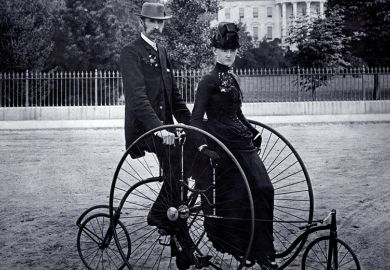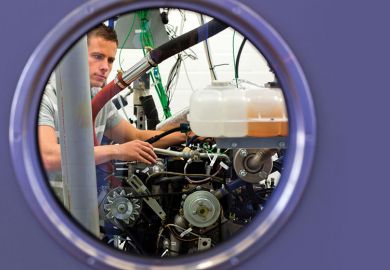If your research was funded by the UK research councils in the 1970s, you had very little incentive to commercialise it.
In those days, the government claimed ownership of all intellectual property arising from the projects that it funded via the research councils, and kept the money from any inventions that resulted. There was the possibility of a small ex gratia payment, but that process was noncontractual and shrouded in secrecy.
Unsurprisingly, few inventions were declared. The National Research Development Corporation (set up after the war to develop government-owned inventions) had one big winner with cephalosporin antibiotics, but then poured money into a series of aborted projects, such as the experimental high-speed train known as the tracked hovercraft.
The Thatcher government ended the corporation’s monopoly and handed IP to the universities to manage instead. Universities were required (with catalytic funding) to facilitate the commercialisation of research and to support entrepreneurship, and all now reward inventors and support entrepreneurs. This has culminated in UK universities developing a technology transfer system that is the envy of the world – even if that is not always appreciated at home.
Technology transfer is unlikely to make universities a lot of money; when someone mentions Stanford, Columbia or MIT and their $100 million+ “profits”, I point to newspaper headlines about lottery winners. Still, I have spent much of the past 20 years explaining to universities and governments around the globe that technology transfer nevertheless offers many rewards. These include reinvigorating mid-career researchers, returning to the public the benefit of research that they have paid for, and stimulating local, regional and national economies. The 21st-century mantra is “impact, not income”.
Yet new guidance issued by the Association of Medical Research Charities in September threatens to take us back to the bad old days. Charities are advised to insist that universities seek their consent to any commercialisation plans for inventions arising out of charity-funded research – and to return to them 50 per cent of any revenue generated.
The public give money to medical charities because they want to see benefits for patients. But the guidance would remove the incentive to commercialise. For instance, it would undermine the University of Cambridge statute stipulating that 90 per cent of the first £100,000 of revenue must go to the inventor(s). It would also add to the already frustratingly long time that it takes to develop an invention into a product. The number of inventions resulting from charity-funded research would fall, IP would fail to be protected and patients and UK plc would lose out.
Fortunately, there are signs that this nightmare scenario may not be realised. Some of the largest medical charities have indicated that they will ignore the guidelines, preferring to retain their existing arrangements with universities. Furthermore, the Wellcome Trust has recently abandoned its requirement for consent to commercialisation plans (although it still requires a 25 per cent share of proceeds).
Smaller universities can struggle to provide support for commercialisation across a wide range of subjects, and this has led to the development of third-party agencies offering general or specialised research commercialisation services. These are successful not because they have been given a monopoly or a revenue share as of right, but because they offer value for money. It is the growth of such agencies, alongside the continuing professional development offered by non-profit knowledge exchange facilitator PraxisAuril, that will further improve UK technology transfer.
Universities pay about half the full cost of “charity-funded” research, and they assume the risk of funding the majority of inventions that produce no revenue. It is only reasonable that they should benefit from those that do.
Further public explanation and debate is needed, and the trustees of medical charities should consider carefully, in relation to their charitable objects, the unintended consequences of any changes to their research support. They should not allow their esteemed organisations to be tarnished by an ill-advised grab for imagined profits.
David Secher is a life fellow of Gonville & Caius College, Cambridge and an elected member of the University of Cambridge’s finance committee. He is patron of PraxisAuril, chair of Fitzwilliam Museum Enterprises and a director of technology transfer company Crossword Cybersecurity. He writes in a personal capacity.
POSTSCRIPT:
Print headline: Cash grab is poor tactic
Register to continue
Why register?
- Registration is free and only takes a moment
- Once registered, you can read 3 articles a month
- Sign up for our newsletter
Subscribe
Or subscribe for unlimited access to:
- Unlimited access to news, views, insights & reviews
- Digital editions
- Digital access to THE’s university and college rankings analysis
Already registered or a current subscriber?








